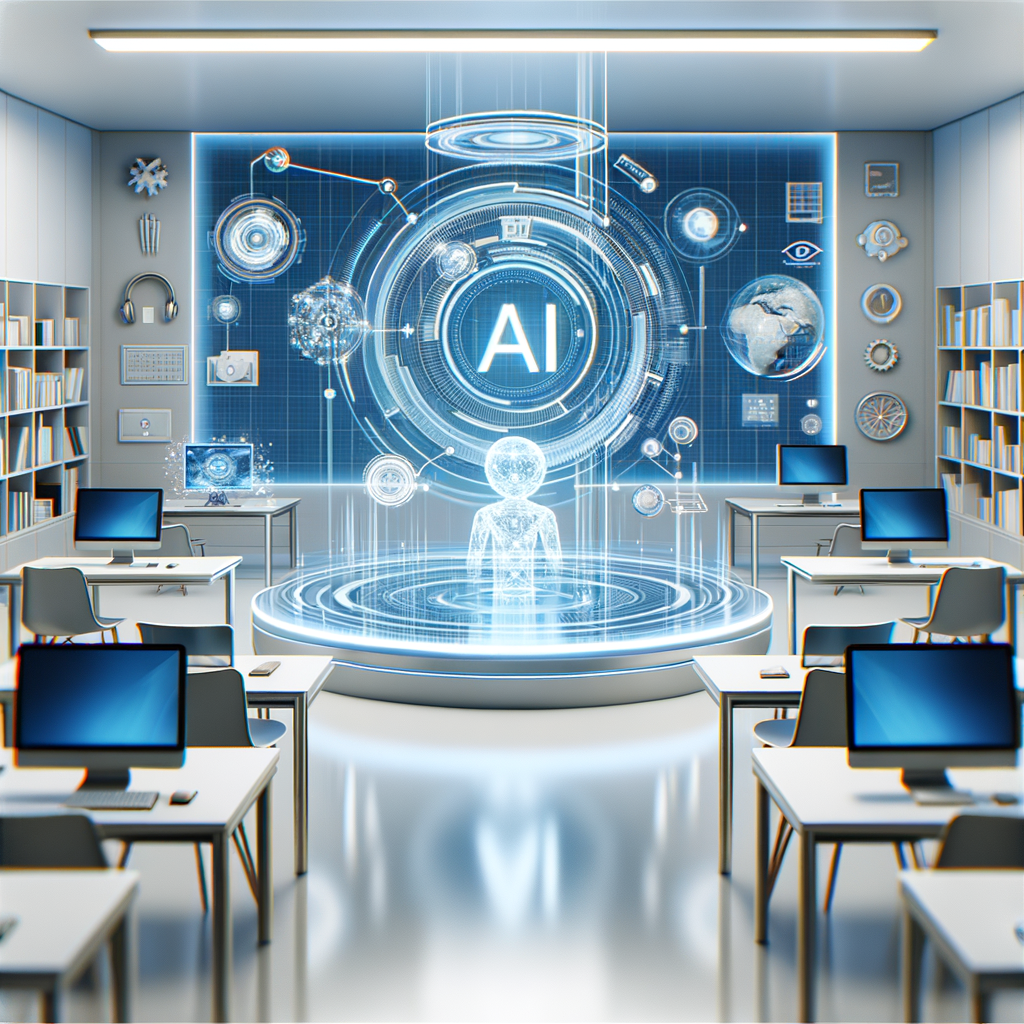
The Future of AI in Education: Transforming Learning Experiences
Explore how artificial intelligence is revolutionizing education by creating personalized learning experiences, enhancing student engagement, and providing innovative teaching tools. Discover the potential and challenges of integrating AI into educational systems worldwide.
Introduction
In recent years, the education sector has witnessed a transformative wave powered by the advancement of technologies, with artificial intelligence (AI) taking center stage. AI in education promises to revolutionize traditional methodologies and bring about changes that tailor educational experiences to the individual needs of students. This paradigm shift not only offers the potential for more personalized learning experiences but also seeks to break down barriers in education, making it more accessible to a broader audience.
Intelligent Tutoring Systems
One of the most prominent applications of AI in education is the development of Intelligent Tutoring Systems (ITS). These systems use AI algorithms to adapt and provide tailored feedback to students. Unlike conventional teaching methods which apply a one-size-fits-all approach, ITS leverages data analytics to analyze each student’s interactions and grasp of the material. It then delivers customized lessons and exercises to reinforce areas that need improvement. This individualized attention is akin to having a personal tutor, capable of working with students at their own pace, thereby enhancing learning outcomes.
Personalized Learning Paths
Personalized learning goes hand-in-hand with intelligent tutoring. AI systems collect and analyze data on students' performance and preferences to curate personalized learning paths. Such paths can dynamically adjust to the student's learning speed and comprehension level, presenting materials and tests designed for optimal retention and engagement. By breaking away from traditional sequential learning methods, AI enables each student to learn in a manner that aligns best with their cognitive abilities, ultimately promoting deeper understanding and mastery of subjects.
Reducing Educational Barriers
AI-powered education technologies have significant potential in leveling the educational playing field. For populations that face geographical, economic, or social barriers, AI can offer a viable solution. Online AI platforms can deliver top-quality education to remote or underserved regions, often at a fraction of the cost of traditional methods. Moreover, AI translation tools can break down language barriers, allowing students from diverse backgrounds to access content in their native language, thereby increasing inclusivity.
Applications in Classroom Settings
In traditional classroom settings, AI can support teachers by automating administrative tasks, such as grading and attendance. By freeing up teachers’ time from routine paperwork, AI allows educators to focus on more critical aspects of teaching, such as curriculum development and student reach. Furthermore, AI-driven analytics can offer educators deeper insights into student behavior and performance, facilitating more effective interventions for students who may require additional support.
Ethical Considerations
While AI in education offers tremendous benefits, it is imperative to address the ethical considerations that accompany its integration. Concerns over data privacy, the potential for algorithmic biases, and the risk of dependency on technology must be handled with transparency and care. Implementing robust data governance frameworks and ensuring that AI systems are inclusive and equitable are essential steps to mitigate these challenges.
Conclusion
AI's role in revolutionizing education is only just beginning. As technology continues to evolve, so will its applications in learning environments. By fostering a symbiotic relationship between teachers, students, and AI, we can create an educational ecosystem that is resilient, adaptive, and conducive to lifelong learning. The future of education, powered by AI, holds the promise of unlocking each learner's potential, irrespective of their starting point.
By embracing the transformative potential of AI in education today, we are paving the way for tomorrow’s pioneering thinkers, innovators, and leaders.